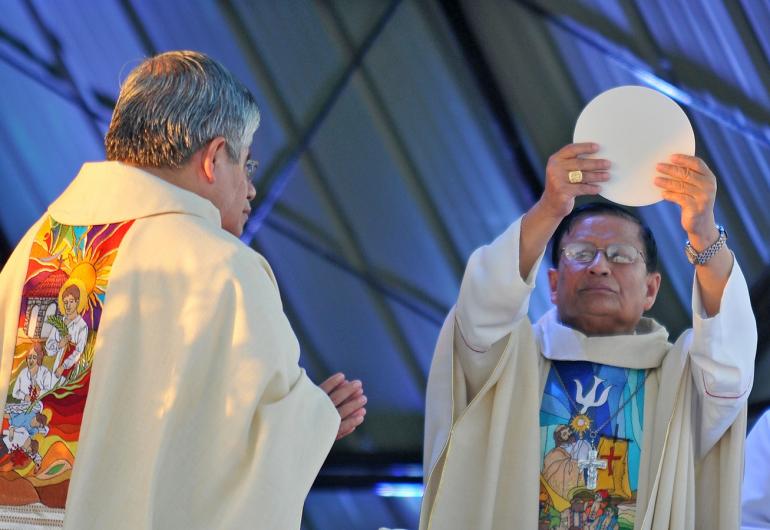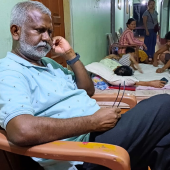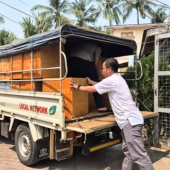Cardinal Bo urges prayer octave for China

Cardinal Charles Maung Bo of Yangon on Sunday called for the expansion of a day of prayer for the Church in China, established by Benedict XVI, into an octave.
In 2007, Benedict designated May 24, the feast of Our Lady Help of Christians, as a Worldwide Day of Prayer for the Church in China.
“On behalf of the Church throughout Asia, as President of the Federation of Asian Bishops [sic] Conferences, I would like to call on the faithful to extend that to a Week of Prayer for the Church in China and the peoples of China, from Sunday 23 May until Sunday 30 May,” Cardinal Bo wrote in a March 14 statement.
He said that “since the start of the Covid-19 pandemic, the peoples of China have faced increasing challenges, which impact us all. It is right that we should pray not only for the Church but for all persons in the People’s Republic of China.”
“We should ask Our Lady of Sheshan to protect all humanity and therefore the dignity of each and every person in China, in the words of Pope Benedict XVI’s prayer, ‘to believe, to hope, to love’,” he added.
In February 2020 China began enforcing administrative measures to control every aspect of religious activity within the country, mandating that all religions and believers in China comply with regulations issued by the Chinese Communist Party, which must be acknowledged as the higher authority.
In May the legislature of China approved a resolution to impose new “security laws” on its formerly autonomous region, Hong Kong— a move pro-democracy protestors and Catholics in the country feared would undermine Hong Kongers’ freedoms, including freedom of religion.
A bishop of the underground Church was arrested in June.
In July a technology publication reported that the Diocese of Hong Kong has been targeted by “spear-phishing” operations from the Chinese government.
The Hong Kong diocese intervened in August to cancel a Catholic pro-democracy ad campaign and prayer that was set to run in local papers.
The same month, Hong Kong entrepreneur and media executive Jimmy Lai was arrested on criminal charges stemming from his support for democracy on the island territory.
In September researchers at an Australian think tank found that re-education camps for Muslims in China’s Xinjiang region had expanded in the past year, despite government claims that most detainees had been released.
In October the Vatican and China renewed their provisional agreement on the appointment of bishops for another two years.
Last month, Bitter Winter reported that beginning May 1, China’s state-run Catholic Church and bishops’ conference will select, approve, and consecrated episcopal candidates, with no mention of the Vatican’s involvement in the process.
Cardinal Bo said that though much of the world, including Burma, faces its own challenges, “in a spirit of solidarity it is right to focus not only on our own challenges but to pray also for others.”
The cardinal said his proposal expresses love for the peoples of China, “my respect for their ancient civilization and extraordinary economic growth, and my hopes that as it continues to rise as a global power, it may become a force for good and a protector of the rights of the most vulnerable and marginalized of the world.”
“I am calling for prayer for each person in China that they may seek and realize the full measure of happiness that our Creator has given to them.”
“So I urge the faithful, throughout the world, to join me in prayer for the Church and the peoples of China, from 23-30 May, and especially to join with Pope Francis, Pope Emeritus Benedict XVI and the whole Church to ask, in the worlds [sic] of Benedict XVI, the ‘Mother of China and all Asia’ to support the faithful, that ‘they never be afraid to speak of Jesus to the world, and of the world to Jesus’, and ‘always be credible witness to this love, ever clinging to the rock of Peter’.” - CBCP News
Radio Veritas Asia (RVA), a media platform of the Catholic Church, aims to share Christ. RVA started in 1969 as a continental Catholic radio station to serve Asian countries in their respective local language, thus earning the tag “the Voice of Asian Christianity.” Responding to the emerging context, RVA embraced media platforms to connect with the global Asian audience via its 21 language websites and various social media platforms.














